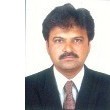Procedure after framing charge in private complaint
 Vinesh K Chhaya
(Querist) 29 January 2012
This query is : Resolved
Vinesh K Chhaya
(Querist) 29 January 2012
This query is : Resolved
My Client had made private Complaint before JMFC and honourable court had issued process against accused under section 202. The procedure upto framing charge against the accused completed. Then after cross-Examine of complainant is to be done.. the advocate of accused argues that first the affidavit of examine to be done then after he will cross examine the complainant.
according to my knowledge the complainant had verified on oath by honorable judicial magistrate first class. that procedure is an affidavit of examine so the advocate of defendant can directly cross-examine the complainant. Pls clear such point according to law.
 Raj Kumar Makkad
(Expert) 29 January 2012
Raj Kumar Makkad
(Expert) 29 January 2012
Though the accused has been charged even then complainant has to make his examination in chief (may it be by way of affidavit) and thereafter the right goes to the counsel for accused to cross-examine him, if the he wants to make it in post charge evidence otherwise the court is free to put the case for the statement of accused under section 313 of criminal procedure code.
 SAINATH DEVALLA
(Expert) 29 January 2012
SAINATH DEVALLA
(Expert) 29 January 2012
Yes, I agree with Mr.Makkad.The council for the accused has a right to examine or verify each and every documentry evidence submitted by the complainant or he can cross check them by examining the complainant.taking of oath is not mandatory.Every case runs on the authanticity of the documents or physical evidence.
 Advocate. Arunagiri
(Expert) 29 January 2012
Advocate. Arunagiri
(Expert) 29 January 2012
In private complaint, the magistrate will take the case on file, after the sworn in statement of the complainant.
In this case also, it seems that the complainant had given sworn in statement only. No one is allowed to cross examine the complainant at this stage.
During the trial, the complainant had to give evidence, based on that the accused will cross examine him.
Complainant can not deny it. This is the formality.
Dont get confused between the sworn in statement and Chief Examination of the complainant.
 Devajyoti Barman
(Expert) 29 January 2012
Devajyoti Barman
(Expert) 29 January 2012
The first examination was evidence before charge.
If at that time he was cross examined and subsequently charge was framed then he needs to be examined again.
 Arun Kumar Bhagat
(Expert) 29 January 2012
Arun Kumar Bhagat
(Expert) 29 January 2012
In Private Complaint case,Charge is framed after examination in chief of all prosecution witnesses. I think the author is referring the summoning order passed u/s 204 Cr.P.C as charged framed u/s240 Cr.P.C. Except N.I.Act cases there is no provision for filing affidavit in chief. It shall be statements made on oath in the dock. The query as well as answers given by all became confusing.
 Shonee Kapoor
(Expert) 30 January 2012
Shonee Kapoor
(Expert) 30 January 2012
nothing left to add.
Regards,
Shonee Kapoor
harassed.by.498a@gmail.com
 Advocate. Arunagiri
(Expert) 30 January 2012
Advocate. Arunagiri
(Expert) 30 January 2012
Mr.ArunKumar,
It is not necessary to examine all the witnesses for framing of the charges.
The following stages is also permitted:-
Sworn in statement, numbering of the case, summon / warrant, framing of charges.
The trial court is having the discretion to fix the date for framing the charges either after or before hearing the witnesses.
 A. A. JOSE
(Expert) 30 January 2012
A. A. JOSE
(Expert) 30 January 2012
I agree with Mr.Arunagiri.
 venkatesh Rao
(Expert) 30 January 2012
venkatesh Rao
(Expert) 30 January 2012
I fully concur with Mr.Arun Kumar and differ from Arunagiri. Sec. 244 is mandatory. Question is not complete. My answer is under the presumption that the it is a warrant case instituted otherwise than on police report.
In the case of State of Karnataka Vs. Dandapani Mudliyar, reported in 1992 Crl. L.J.at page 25, the Hih Court of karnataka has ruled-" it is therefore significant law provides for sometime to intervene between the date on which the charge is framed and the date on which the accused is required to state as to whether he wishes to cross examine before framing the charge"
It has been held in the case of Upendra Rao Vs, Sampoorna, reported in (1990)2 Crimes 17 AP-" When charge was framed against petitioner without recording any evidence and affording any opportunity to him of being considered for discharge, Charges may be quashed.
Before framing the charge, the complainant has to examine himself and his witnesses and the accused shall have the right to cross examine them. Then after examining the materilas on record, if the magistrate feels that the evidence on record, if unrebutted, may prove the guilt of the accused, he may proceed to frame the charge.
 Rajesh kumar singh
(Expert) 30 January 2012
Rajesh kumar singh
(Expert) 30 January 2012
no needs of affidavit of examine,nor 244 nor 246 crpc.you can pray from the court for close the cross examination.
